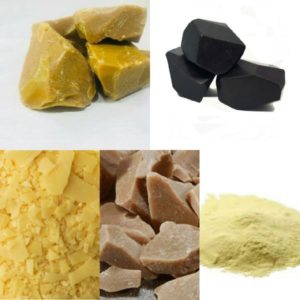
Carnauba Wax, also called Brazil Wax, a vegetable wax obtained from the fronds of the Carnauba Tree of Brazil. Carnauba wax occurs as hard, brittle substances with a resinous fracture and a color ranging from dark green to pale brown. Valued among the natural waxes for its hardness and high melting temperature, carnauba wax is employed as a food grade polish and as a hardening or gelling agent in number of products. It is soluble in alcohol, chloroform and ether; but is insoluble in. water.
The wax consists primarily of esters of long-chain alcohols and acids. It has a Melting Point of about 85°C. Although it has been replaced in many applications by cheaper synthetics, it is still used as a polish for candies and medicinal pills, as a thickener for solvents and oils, and even as a hardener for printing inks.
Applications:
- Paper coatings in Food Industries
- Investment Casting
- Cosmetics
- Carbon Papers
- Shoe & Floor polishes
- Explosives and Dynamite cord
- Non- Ionic emulsions
- Floor polish Emulsion
- Crayons
General Specifications:
| Grades |
T1 |
T3 |
T4 |
| Moisture |
1-0% max |
1-0% max |
1-0% max |
| Acid Value |
02-07 mg KOH/g |
02-07 mg KOH/g |
02-07 mg KOH/g |
| Melting Range |
80-86 0 C |
80-86 0 C |
80-86 0 C |
| Insoluble Impurities |
0.20% max |
0.50% max |
0.50% max |
| Color |
Prime Yellow (Extra Light) |
Red |
Black |
Packing: Carnauba Wax is produced in Lumps / Pellets / Flakes / Powder which are packed in 25 kgs. Bags.


